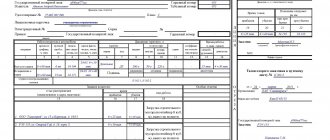Features and subject of the agreement
Vehicle parts or components require frequent replacement or repair. When drawing up an agreement, it should be stipulated who will be responsible for caring for him and at what cost.
If the contract is concluded for a long period, replacing summer tires with winter ones will require cash costs. Operating costs include the cost of gasoline, cleaning the interior, washing the car, and refilling the air conditioner with freon.
The borrower bears the costs of maintaining the car in working condition: maintenance, replacement of parts and components of the car, elimination of breakdowns.
What is better - a contract or a power of attorney?
Some car owners limit themselves to issuing a power of attorney for the right to use the car to another person. This is a very common practice. Not everyone understands the difference between a contract and such a power of attorney. Of course, persons who received a vehicle from the owner can use the vehicle on the basis of both documents.
But only in an agreement is it possible to provide a detailed description of the rights and obligations of the parties. As already noted, maintaining a car constantly requires certain costs. It can stipulate that they fall on the person who will use it. In such circumstances, legal entities may expense these costs.
Varieties
There are two main types of such agreement:
- for individuals;
- for legal entities, when at least one of the parties is an organization.
An agreement between individuals is used instead of a general power of attorney in cases where there is a need to clarify legal responsibility for the use of someone else’s property. For individuals, the form of the transaction can be oral, but in this case it will not be possible to stipulate all the legal nuances, so a written form is more desirable. If one of the parties is a legal entity, or the agreement is concluded between organizations, then written form is required.
Introduction to the agreement
A characteristic feature of all transactions for the gratuitous use of property is the absence of a payment clause. When drawing up a project, you should be guided by all the provisions of the Civil Code of the Russian Federation regarding these transactions.
An agreement for the gratuitous use of a car is concluded between parties called the “borrower” and the “lender” (owner of the car). It should indicate their exact details, their full names and passport numbers. If we are talking about a transaction between legal entities, the full name and names of the managers acting on the basis of the charters or their representatives are indicated.
The transferred car is subject to a detailed description: vehicle make, color, license plate number, year of manufacture. Be sure to indicate the series and number of the document confirming the lender's ownership. If there is additional equipment (radio tape recorder, fire extinguisher), then also indicate this in the agreement.
The car transferred under the transaction should not be under arrest or pledged by the bank. This clause should be included in the agreement.
A sample agreement can be downloaded below:
Is it necessary to stipulate for what purposes the car will be used?
In order to ensure the safety of the car, the owner must stipulate the terms of use in the contract. For example, the borrower, having received a car under an agreement, uses it for private transportation. Naturally, in such conditions the car will wear out faster. The lender may prohibit the use of the vehicle for such purposes and stipulate that the car must be used only for personal trips.
The owner may provide for his right to check the technical condition of the machine and the conditions of use.
Why apply for free use of a car?
The fact of transferring a car for use to another person can be confirmed by a simple power of attorney, a general power of attorney or an agreement for gratuitous use (loan agreement - Chapter 36 of the Civil Code of the Russian Federation). In such cases, the car is not re-registered by the traffic police, which means that receipts for administrative fines are sent to the owner, and in the event of an accident (if the car escapes), he will become the main suspect. If a written agreement on the free use of a car was not concluded, will there be problems with the person driving such a vehicle?
In addition, concluding an agreement allows the owner to legally resolve issues: who is responsible for maintaining the car, current and major repairs, and in what condition the car was handed over and returned. Very often, the conclusion of such an agreement is beneficial to legal entities and individual entrepreneurs, who will have the right to include the costs of maintaining a car as part of the expenses of such a business entity. And, therefore, reduce the tax amount.
A well-drafted written loan agreement in the event of litigation will become significant evidence in a civil case in the field of protection of civil rights.
Transaction price
This transaction is free of charge. The borrower does not pay any amount to the owner of the car, and he does not make any profit from it. Despite this, be sure to indicate the value of the car at the time of signing the agreement. This is necessary in case it gets damaged. Assessing a car when signing a deal will help avoid long disputes when determining the degree of liability of the parties in cases of road accidents or careless handling.
It is better to transfer the subject of the transaction using a transfer and acceptance certificate. It is also used in relations between citizens. It is in the act that any party to the contract can stipulate previously unnoticed defects, damage, and scratches. It is advisable to indicate the mileage of the car at the time of transfer.
Filling rules
The following essential conditions must be mentioned in the text:
- parties to the agreement (passport details of individuals and full legal address for a legal entity with passport details of its representative);
- subject of the contract - a vehicle with its identifying characteristics (make, model, year of manufacture, state number).
At the end of the text of the agreement, the full details of the parties are indicated and signatures are placed with a transcript.
The text must indicate provisions that, at the request of the parties to the agreement, can also be considered significant:
- the grounds on which the owner owns the vehicle (sale and purchase agreement, etc.), as well as the existence of rights to the vehicle of third parties;
- purposes of use (personal, cargo transportation, etc.);
- cost of the vehicle (certificate of book value under the owner-organization, appraisal or certificate if the owner is an individual);
- liability of participants when operating the vehicle (causing damage to the vehicle itself and to other persons and their property);
- duties of the parties;
- maintenance costs;
- grounds for early termination of the agreement;
- validity period (if it is absent, by default the validity period of the agreement is considered to be 1 year from the date of signing);
- terms of renewal;
- other conditions important for both parties.
MORE: Penalties under a loan agreement in an MFO
Cases of liability
The most important section is the responsibility of the parties. If the car is transferred to the borrower with defects discovered later, this gives grounds to demand compensation for the costs of eliminating them.
The borrower is responsible if he used the car for purposes not provided for in the agreement and allowed it to be damaged. Or did not take any measures to prevent her death or damage. If damage during use of the machine is caused to unauthorized persons, then the owner of the vehicle is responsible.
The responsibility for obtaining an MTPL policy rests with the borrower, whom the owner of the car provides with all the necessary documents. The borrower is obliged to return the subject of the agreement in proper condition, taking into account normal wear and tear, and, if necessary, repair the vehicle.
You should indicate the validity period of the contract, as well as the conditions for early termination, then sign and seal it (for legal entities).
Drawing up and signing an agreement is not a mere formality. It can be regarded as an effective way to protect the interests of not only the car owner, but also the borrower.
In what cases is such a document needed?
A prerequisite for the legitimacy of a document is its execution in writing. There is no need to certify with a notarized signature and seal and register with special authorities.
The contents of the free car rental agreement contain the following points:
- the full name of the agreement;
- where and when the valid document was issued - date, month, year and city;
- information about citizens signing the paper. An individual indicates his full name, and a legal entity records the name of the company, full name, position held, passport data and document details giving him the right to sign a free car rental agreement;
- description of the vehicle. All key characteristics must be listed, and the application also indicates the mileage, technical condition and existing faults;
- A record is made of the title document confirming ownership. The following information is listed - series, number, date of PTS, details of the purchase and sale agreement or power of attorney, etc.;
- the absence or presence of third parties who have the right to make claims is confirmed;
- the purpose of the rental is indicated - business trips, transportation of goods or passengers;
- car price. A legal entity presents a certificate of book value, and an individual can use the services of an appraiser and obtain an opinion;
- payment of operating costs. The borrower pays all expenses, however, responsibilities can be divided and part of it transferred to the citizen transferring the car under a free rental agreement;
- liability of the parties in the event of a vehicle breakdown in an accident, etc.;
- circle of responsibilities of the borrower and the lender. Deliver the vehicle for use on time or maintain the vehicle in good condition;
- start and end dates, rules for early cancellation of the rental agreement;
- details and signatures of participants.
All agreements for disinterested use are regulated by Chapter 36, Part 2 of the Federal Law-14 of the Civil Code of the Russian Federation, which provides for the absence of remuneration for use. However, agreements for the disinterested use of a car have some features:
- First of all, these agreements are marked by the high responsibility associated with driving a vehicle, as an object of high danger. In addition, the car owner has many responsibilities.
- The next feature of motor transport, as an object of an agreement for disinterested use, is the completeness of the transport transferred by the owner of the car to the user. A car, in addition to structurally integral components, has components that do not meet the characteristics of the vehicle, that is, when operating a vehicle (for example, tires), their replacement is necessary.
- Among other things, the conditions for using transport vary widely, and the technical condition of the vehicle and its serviceability depend on the conditions of its use. Despite the specific purpose of transport - to travel, it can be used in different ways: for example, a passenger car can be used for personal travel, or it can be used as a taxi. In addition, vehicles wear out over the course of use, both physically and mentally.
Therefore, when concluding such an agreement, it is necessary to provide for all the details of the disinterested use of the car. This will ensure the protection of the rights of the owner of the car and at the same time ensure the fullest use by the recipient of the transferred vehicle.
Today it is rare to find concluded agreements for the disinterested use of transport. The need for this appears when participants see the benefits of such an agreement, especially in the area of paying taxes. The costs of maintaining the vehicle in good condition are borne by the recipient of the vehicle by agreement. The parties to the agreement can write down the following here:
- Replacement, repair of spare parts, tires and other costs associated with the operation of transport.
- Who pays the fines received by the vehicle owner for traffic violations?
- Reimbursement of worn-out components during vehicle operation.
- If the owner of the vehicle uses his car to carry out official tasks, the institution can provide compensation for the costs of fuel and lubricants.
Such an agreement can be drawn up under the following circumstances:
- Transfer of a vehicle for use in a private taxi fleet.
- Use of transport in the interests of the institution.
- Transferring a car to other employees of an institution for a long time.
The main point in the listed options for transferring vehicles is that there is no financial compensation provided, that is, the car is transferred free of charge. This is the difference between renting a car and using it for free.
- When concluding an agreement for the disinterested use of a car, you must provide the following documents:
- Certificates confirming the identities of the parties.
- Registration certificate for the car.
- OSAGO – car insurance.
- Driver's license of the recipient of the vehicle.
- The agreement is drawn up in 2 copies, with one copy given to the signatories.
- The text of the agreement displays all the information displayed in the documents, as well as units that are provided for temporary use.
- Motor vehicles should not be mortgaged or be the subject of a lawsuit.
- The text of the agreement must also indicate the mileage of the vehicle and note any identified faults and shortcomings.
- A document confirming the estimated value of the car.
What is better - a contract or a power of attorney?
Both options provide the rights to use a car to a person who is not the owner of the vehicle. At the same time, an agreement for the disinterested transfer of a car has at least two advantages:
- The agreement describes in detail the rights and obligations of the parties to the agreement, assigning operating costs to the user of the vehicle.
- The agreement is the basis for transferring operating costs to the institution's costs.
A free rental agreement is concluded quite rarely. His need arises due to merits and taxes. All expenses for maintaining the car are passed on to the person who uses the transport. This may include:
- parts replacement, car repair;
- payment for fines that come to the owner, while the repayment is carried out by the driver of the vehicle himself;
- Reimbursement for wear and tear that occurs during use of the machine.
If the owner of the car uses it to carry out work tasks, then the company must reimburse all expenses for fuel and possible repair work.
Such an agreement is carried out in several cases.
- The car is transferred to a private taxi.
- Use of the machine in the interests of the company.
- Transfer of transport for a long time.
Regular rental and gratuitous transfer of transport differ from each other. The main difference is that with a gratuitous transfer there is no material reward. In other words, a person does not buy a car, but can simply use it for free.
The possibility of drawing up rental agreements for a truck with an individual entrepreneur free of charge or with other persons is possible under the legislation of the Russian Federation. A detailed description is presented in Art. 689 of the Civil Code of the Russian Federation. The document can be drawn up between legally capable persons and affect not only cars, but also other types of property.
When using a machine, a third party has the right to improve the vehicle and improve its quality, if there is no violation of the basic properties. The contract being drawn up has significant differences in comparison with a power of attorney.
The package of required documents is small.
- Documents confirming the identity of both parties.
- Technical passport for the car.
- OSAGO policy.
- Driver's license of the car owner.
Agreement in 2 copies for each person, where all the nuances, rights, as well as attached documents are indicated.
The vehicle must not be subject to collateral, credit, or appearing in court. The mileage of the car at the time of submitting documents and possible breakdowns and shortcomings must be indicated in the contract.







